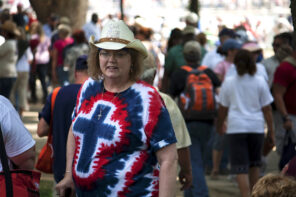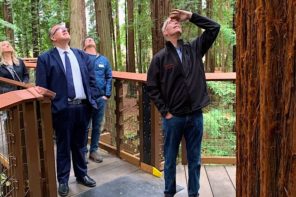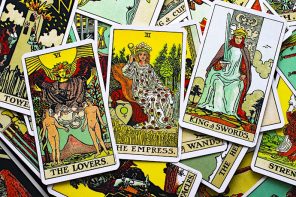New York Times columnist David Brooks is way behind the curve when it comes to post-theistic ethics and religion. In yesterday’s column, “Building Better Secularists,” what he actually builds is a caricature of “secularists” which he then proceeds to scold. Brooks sees these poor secular creatures (who are inching toward majority status in our culture) as feebly—and thus far futilely–trying to build an inspiring ethic without the “God” prop.
Relax, Mr. Brooks, we are doing just fine. I write, incidentally, as a Christian atheist, something I describe more fully in Christianity Without God: Moving Beyond the Dogmas and Retrieving the Epic Moral Narrative (SUNY Press 2014).
Brooks’ reflects a common syllabus of errors regarding ethics and religion without “God.”
For starters, he says that the godly can draw from “moral creeds that have evolved over centuries,” but that those poor adrift secularists “have to build their own moral philosophies” starting from scratch.
Nonsense!
Even Pope Francis invites atheists to join him on his Judeo-Christian moral mission. That epic moral vision that was birthed in ancient Israel and echoed into Christianity doesn’t require deity or afterlife beliefs, something the pope seems to get. And that grand biblical moral vision is just as available to those who deny the “God” and afterlife hypotheses as it is to those who take those myths literally.
In any religion the moral core is one thing; the imaginative dogmatic superstructure is another. Christianity’s dogmatic superstructure is especially replete with phantasmagoria…things like virgin births, dead people walking, and those resurrected people ascending straight up into the heavens (without ever going into orbit). Fortunately the moral vision of Judaeo-Christianity religion does not depend on such poetic fictions. The “God” and afterlife hypotheses add nothing to the moral core of Judaism and Christianity, and that moral core is just as available to secularists as it is to the dogmatically orthodox.
Indeed many professing Christians might be dogmatically orthodox moral heretics. They take the dogmatic legends literally and fervidly but are less enthused about the moral demands of the tradition. Thus they would smite you for not taking literally such metaphors as Exodus, Virgin Birth, and Resurrection but will not join Isaiah in saying that the only route to peace is through the absolute elimination of poverty. (Isaiah 32;17).
Nor are they, as was Jesus, “good news for the poor” or “peacemakers.” (Luke 4:18: Matt. 5:9)
In a splendid irony, secularists who walk the walk on these ideals might be more “Christian” than the “dogmatically” pure.
For Brooks, to be religious you have to believe in “God,” which is way off the mark. Religion is a response to the sacred—whether the sacred is understood theistically or not. Buddhism, Taoism, Confucianism are godless, and yet they have been, and are, culture-shaping powerhouses of moral idealism. As Professor Chun-Fang Yu says “Unlike most other religions, Chinese religion does not have a creator god…There is no god transcendent and separate from the world and there is no heaven outside of the universe to which human beings would want to go for refuge.” Increasingly, Christians, Jews, and others are at one with that sense of reality—as is modern science.
Literalism is suffocating. It smothers the moral dynamism of “religions,” which at their fiery core are classics in the art of cherishing, and a spiritual resource—for those who imagine a “God,” and for those who do not. The Exodus may not have happened and Moses may never have existed. He might, like Yahweh, be a composite of many personalities woven together with literary freedom.
“There was no mass Exodus from Egypt,” write historians Israel Finkelstein and Neil Silberman. Forget the fictional frogs and the sea engulfing the bad guys. What happened from 1250 to 1050 B.C.E. was not history but a psycho-political, epochal breakthrough of social imagination.* Outstripping Homer and Virgil in wit and wisdom, these Hebrew poets imagined a move from the one-percent rule of Egypt to the sharing society of Sinai where “there will be no poor among you” (Deut. 15:4) and where the first experiment in a classless society achieved a success that sowed the seeds of modern democratic theory.
There is good sense and abundant spiritual inspiration in that ancient poetry. Noisy debates about gods and goddesses should not distract us from moral wisdom that is so contemporaneously relevant that it might well have been written yesterday.
*Correction: dates originally read “2050” to 1050. RD regrets the error.





